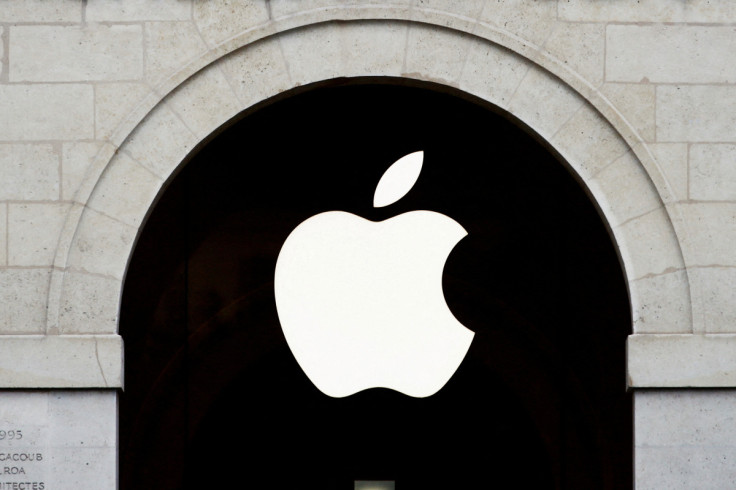Apple's foray into BNPL business poses a risk to consumers, its rivals
Apple Pay Later enables consumers to split purchases into four payments with no fees and zero interest .

Apple introduced its BNPL (buy now, pay later) service dubbed Apple Pay Later in the United States on March 28. With Apple Pay Later, the Cupertino-based tech giant made its foray into the fintech sector, which is currently dominated by Financial companies like Affirm Holdings and Klarna. The service is built into Apple Wallet and Apple Pay.
Government regulators describe BNPL as a practice that could potentially harm customers. However, Apple claims its newly launched Pay Later service is "designed with users' financial health in mind." Apple has been reportedly working on the service since at least last year. Bloomberg's Mark Gurman initially indicated that the company's financial services have been delayed.
Apple Pay Later has started rolling out in the US to invited users 💸
— Apple Hub (@theapplehub) March 28, 2023
Would you use this? pic.twitter.com/RTT8jPCLlT
As the name suggests, Apple Pay Later allows users to purchase a product using Apple Pay and then split the purchase into four payments over the course of six weeks. While there's no interest on these installments, it is unclear whether the American tech giant will charge a late fee. If there's a late fee, it will be interesting to see how much it will cost.
The dark side of BNPL services
BNPL services gained popularity since it helps users to make big purchases and then pay back in chunks with no interest. According to the latest Adobe Analytics data, more people are taking advantage of the Buy Now Pay Later services. While it looks harmless on the surface, some BNPL companies have now entered the healthcare sector, as reported by San Francisco Business Times.
Some existing companies like Affirm have already added options for payment related to healthcare. This service targets those who do not have enough money to pay healthcare costs upfront. On the downside, this kind of easy-to-abuse service can be used for purchasing nonessential items.
A report by SFGate accused BNPL services of sending Generation Z (people born between 1997 and 2012) spiralling into debt. The report shows that an alarming 73 per cent of BNPL customers are of this generation. Moreover, nearly 43 pe rcent of them have reportedly missed at least one payment. A similar survey conducted by DebtHammer revealed that 30 per cent of those using the BNPL services struggle to make their payments.
Apple just announced Apple Pay later.
— TJ ⚡️ (@StockzNCrypto) March 28, 2023
Now Americans really about to be in debt.
Double click the side of your phone to borrow money.
Aside from this, the survey implies 32 per cent of users prioritise their BNPL bills over other essential expenses such as child support, utilities, and rent. The current state of the economy could make their struggles worse. According to the SFGate report, BNPL services can encourage users to make unnecessary bigger purchases.
The data acquired by the outlet reveals an average Affirm customer shells out $365 on a single purchase. For comparison, the average cart size recorded two years ago was just $100. The service also enables its users to purchase a wardrobe without making payments upfront. Affirm's massive Gen Z consumer base spends a staggering 73 per cent of its Afterpay purchases on clothing.
Things are likely to get worse in the future
BNPL services are similar to other payment systems since they also can incur overdraft fees in case a user charges them to an account that doesn't have sufficient funds. To make things worse, credit companies like Equifax, and TransUnion are gearing up to offer BNPL loans on credit reports. So, it is safe to assume that missing payment on these seemingly innocuous services will soon come with a consequence for the consumers, as well as BNPL companies.
Klarna's valuation reportedly dropped by a third (from $46 billion in 2022 to $30 billion) due to an unpredictable economy and missed/late payments. On top of that, the company's share price dropped as well. Klarna had to lay off 10 percent of its employees last month due to the volatile stock market, coupled with a possible recession. Moreover, government watchdogs are monitoring BNPL services.
The Consumer Financial Protection Bureau has conducted an investigation into PayPal, Affirm, Afterpay, Zip, and Klarna over concerns about accumulating debt. Aside from this, these BNPL companies have raised concerns over data harvesting and regulatory arbitrage. As a result, the UK introduced stricter regulator policies for the $3.7 billion BNPL industry last year.
So, the Apple Pay Later service will be subject to the same sort of scrutiny. Nevertheless, Apple has normalised the concept by bringing it to the iPhone. It is unclear whether this move will pose a risk to the consumers as well as competing businesses. While Apple can reach out to millions of iPhone owners currently using Apple Pay, its rivals including Afterpay, Affirm, and Klarna do not have that kind of grasp.
© Copyright IBTimes 2025. All rights reserved.






















